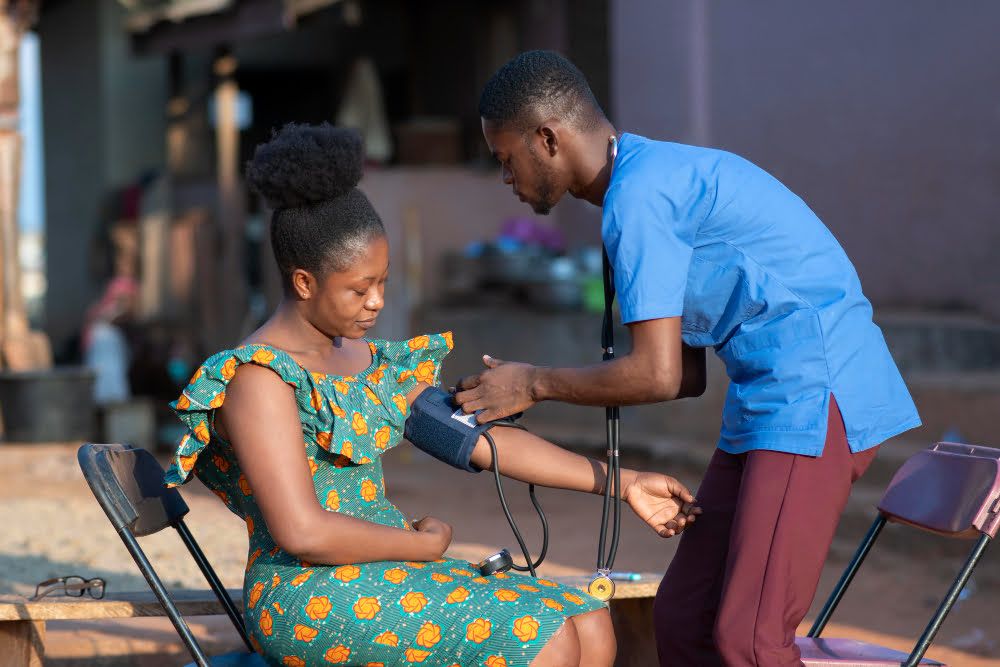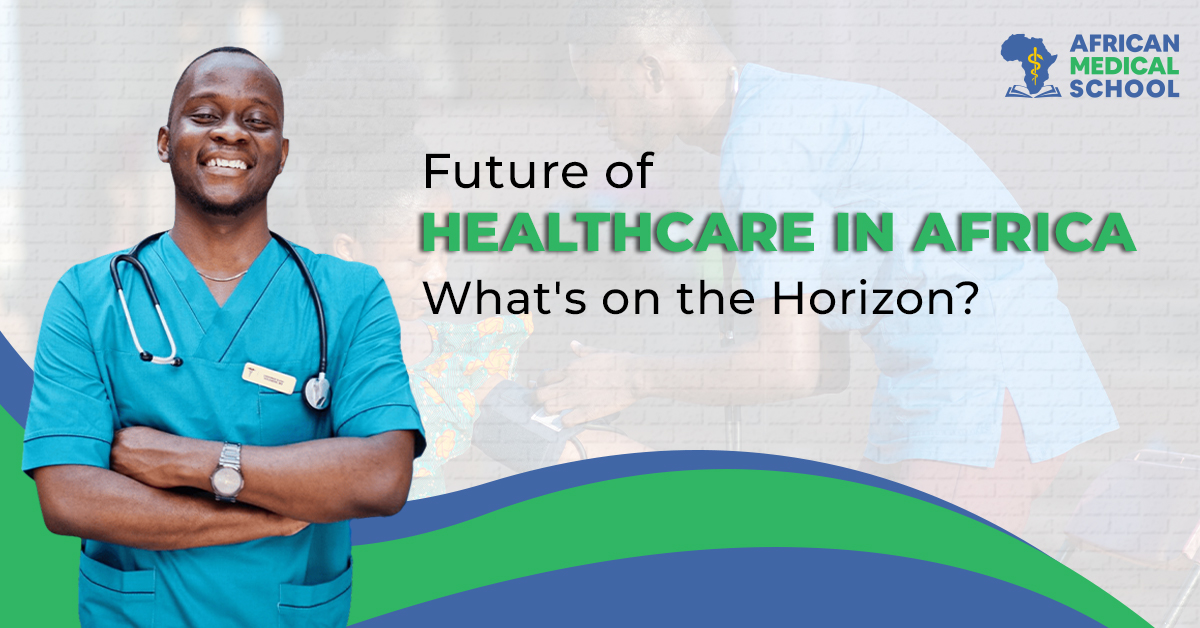|
|
Blog Summary
Introduction
Healthcare in Africa presents an array of opportunities and potential for growth. While Africa has faced challenges such as the prevalent diseases of malaria, HIV/AIDS, and tuberculosis, there is growing optimism in the region’s healthcare sector. The demand for increased access to healthcare, especially in rural areas distant from medical facilities, underscores the need for innovative solutions.
Fortunately, positive strides are being made. Telemedicine, for instance, is gaining traction in Africa. This technology-enabled approach allows medical professionals to offer consultations and care to patients from afar, using tools like video conferencing. Such advancements are bridging the healthcare accessibility gap for those in remote areas. The importance of medical education in Africa is just as important as the advancements in healthcare.
Additionally, mobile health solutions are on the rise. These platforms offer valuable health education, information dissemination, and the capability to monitor patient health data. Such innovations not only enhance the quality of care but also make healthcare more cost-effective. This article will delve into the evolving landscape of healthcare in Africa, highlighting both the potential challenges and the exciting advancements that are paving the way forward.
The Current State of Healthcare in Africa
The healthcare landscape in Africa displays a combination of progress and challenges. Notably, there have been substantial advancements in recent times. An illustrative example is the remarkable reduction of over fifty percent in child mortality rates since 1990.
However, Africa still grapples with significant health hurdles. Prevalent diseases such as malaria, HIV/AIDS, and tuberculosis persist as the primary causes of mortality on the continent. Although these diseases are preventable and treatable, their enduring impact remains a pressing concern.
- Malaria is a mosquito-borne disease that is the leading cause of death in Africa. It is estimated that malaria kills more than 400,000 people in Africa each year, mostly children under the age of five.
- HIV/AIDS is a chronic disease caused by the human immunodeficiency virus (HIV). HIV infection can progress to AIDS, a disease that weakens the immune system and makes patients more vulnerable to infections. It is estimated that more than 25 million people are living with HIV in Africa.
- Tuberculosis is a bacterial infection that can affect any part of the body, but it most commonly affects the lungs. Tuberculosis is a severe disease that can be fatal if not treated. It is estimated that more than 2 million people have tuberculosis in Africa.
- Pneumonia is an infection of the lungs caused by bacteria, viruses, or fungi. Pneumonia is a significant cause of death in children under five. It is estimated that pneumonia kills more than 1 million children in Africa each year.

Africa’s healthcare systems face some challenges
- Lack of funding: Africa spends less on healthcare per capita than any other continent. This lack of funding makes it challenging to build and maintain hospitals and clinics, train healthcare workers, and purchase essential medicines and equipment.
- Lack of infrastructure: Many parts of Africa need more infrastructure for good healthcare, such as roads, electricity, and clean water. This makes it difficult to get patients to hospitals and clinics and to deliver quality care.
- Lack of skilled workers: More skilled healthcare workers, such as doctors, nurses, and midwives, are needed throughout Africa. This shortage makes providing primary healthcare to the continent’s population complex.
Africa faces three significant challenges in its quest for universal healthcare: lack of funding, inadequate infrastructure, and a shortage of skilled healthcare workers. To achieve universal healthcare, Africa needs to address these challenges. Despite the challenges facing healthcare in Africa, there are many opportunities for those who want to pursue medicine in 2023.
This will require systemic reforms, investments, and strategic initiatives that align to ensure that healthcare is not just a privilege but a fundamental right for all Africans.
The Future of Healthcare in Africa
Discuss the trends that are on the horizon for healthcare in Africa.
- Telemedicine: Telemedicine is becoming increasingly popular in Africa. In 2020, there were an estimated 500,000 telemedicine consultations in Africa. This number is expected to grow to 2 million by 2025. Telemedicine can help to improve access to healthcare in rural areas, where there is a shortage of doctors and nurses. It can also help to reduce costs, as patients do not have to travel to see a doctor.
- Mobile health (mHealth): mHealth is also becoming increasingly popular in Africa. In 2020, there were an estimated 100 million mHealth users in Africa. This number is expected to grow to 200 million by 2025. mHealth can be used to provide education and information about health, to track patient health data, and to provide remote monitoring of patients. This can help to improve the quality of care and reduce costs.
- Preventive care: There is a growing focus on preventative care in Africa. In 2020, the African Union launched the “Health for Africa” initiative to promote preventive care across the continent. The industry includes some programs, such as vaccination campaigns, malaria prevention programs, and HIV/AIDS prevention programs.
Africa is poised to enhance its healthcare system by embracing the potential of telemedicine and mHealth. To pave the way for this transformative journey, it’s essential to bolster infrastructure, encompassing advanced telecommunications networks, electricity grids, and widespread internet access. By formulating comprehensive and clear regulations for telemedicine and mHealth, Africa can guarantee the safety of patients and maintain high standards of care. The best medical schools in Africa are increasingly incorporating telemedicine and mHealth into their curriculum, in order to prepare students for the future of healthcare in the continent.

While introducing and integrating telemedicine and mHealth might come with costs, innovative solutions can be explored to make these technologies accessible and affordable for everyone. Spreading awareness and demystifying these technologies are key steps to ensure their widespread adoption. With the right strategies and commitment, Africa stands on the brink of a healthcare revolution, bringing quality care closer to everyone, no matter where they are.
Conclusion
The future of healthcare in Africa holds great promise. Several emerging trends have the potential to significantly enhance the health and well-being of the African population. While there are challenges ahead, by focusing on infrastructure investment, streamlining regulations, making telemedicine and mHealth more accessible, raising awareness about these advancements, and addressing the need for skilled healthcare professionals, Africa is poised to harness the power of the latest technologies and elevate the health and well-being of its people.



20 Comments. Leave new
Telemedicine is becoming increasingly popular in Africa. In 2020, there were an estimated 500,000 telemedicine consultations in Africa. This number is expected to grow to 2 million by 2025. Telemedicine can help to improve access to healthcare in rural areas, where there is a shortage of doctors and nurses. It can also help to reduce costs, as patients do not have to travel to see a doctor. Ok-Life-Accident-and-Health-or-Sickness-Producer Exam Dumps
Can you be more specific about the content of your article? After reading it, I still have some doubts. Hope you can help me. https://www.binance.info/register?ref=IHJUI7TF
I don’t think the title of your article matches the content lol. Just kidding, mainly because I had some doubts after reading the article. https://www.binance.info/register?ref=IHJUI7TF
Heard good things about 715bet18. Giving it a whirl tonight. Wish me luck, fellas! Give it a go: 715bet18
Just discovered lucky213.. Hmm, giving it a test run. Anyone else playing? Check it out lucky213
Ugh, those blocked links are a pain. Linkvaow88bong88 promises a working one so I’m grabbing it fast…maybe this time I’ll finally get in!. linkvaow88bong88
Looking for a reliable Sv388 link? Sv388link seems legit. Got me where I needed to go without any hassle. If you need it, here it is: sv388link
Can you be more specific about the content of your article? After reading it, I still have some doubts. Hope you can help me. https://accounts.binance.com/en-IN/register-person?ref=A80YTPZ1
Been checking out bonos777bet lately, mainly for the bonuses. They’re pretty good, definitely worth keeping an eye on. Check it: bonos777bet
Thanks for sharing. I read many of your blog posts, cool, your blog is very good.
**mitolyn reviews**
Mitolyn is a carefully developed, plant-based formula created to help support metabolic efficiency and encourage healthy, lasting weight management.
Your article helped me a lot, is there any more related content? Thanks!
Just found tg77777. Checking it out, see if it’s worth my time. I could use a quick win and this just might be the place to get it. wish me luck! tg77777
Yo, just trying to get my game on with TMTPlay! Needed to find the right login. Hope this works. Peace out. Check it out here: tmtplay888 login
Alright, gotta get into u7777game and see what all the fuss is about. Hoping for some big wins tonight! Get your fix here: u7777gamelogin
Thank you for your sharing. I am worried that I lack creative ideas. It is your article that makes me full of hope. Thank you. But, I have a question, can you help me?
Slot tại xn88 có biểu tượng động và hiệu ứng rung (trên điện thoại) – tăng cảm giác chân thực và phấn khích khi trúng thưởng lớn. TONY02-25O
I don’t think the title of your article matches the content lol. Just kidding, mainly because I had some doubts after reading the article. https://accounts.binance.info/register-person?ref=IXBIAFVY
Your article helped me a lot, is there any more related content? Thanks! https://www.binance.com/register?ref=JW3W4Y3A
Важно подобрать надежный vps хрумер https://www.olx.ua/d/uk/obyavlenie/progon-hrumerom-dr-50-po-ahrefs-uvelichu-reyting-domena-IDXnHrG.html, который обеспечит стабильную работу программы.